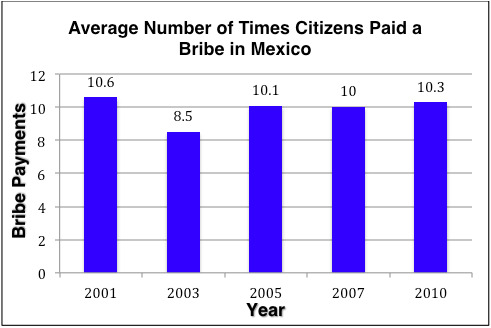|
Highly developed
cultures, including those of the Olmecs, Mayas, Toltecs, and Aztecs, existed long before the Spanish conquest. Hernan Cortes
conquered Mexico during the period 1519-21 and founded a Spanish colony that lasted nearly 300 years.
Independence from Spain
was proclaimed by Father Miguel Hidalgo on September 16, 1810. Father Hidalgo's declaration of national independence, “Viva
Mexico!,” known in Mexico as the "Grito de Dolores," launched a decade-long struggle for independence from Spain. Prominent
figures in Mexico's war for independence were: Father Jose Maria Morelos; Gen. Augustin de Iturbide, who defeated the Spaniards
and ruled as Mexican emperor from 1822-23; and Gen. Antonio Lopez de Santa Ana, who went on to dominate Mexican politics from
1833 to 1855. An 1821 treaty recognized Mexican independence from Spain and called for a constitutional monarchy. The planned
monarchy failed; a republic was proclaimed in December 1822 and established in 1824.
Throughout the rest of the 19th century, Mexico's government and economy were shaped
by contentious debates among liberals and conservatives, republicans and monarchists, federalists and those who favored centralized
government. During the four presidential terms of Benito Juarez (1858-72), Mexico experimented with modern democratic and
economic reforms. President Juarez' terms in office and Mexico's early experience with democracy were interrupted by the invasion
of French forces in early 1862. They imposed a monarchy on the country in the form of Hapsburg archduke Ferdinand Maximilian
of Austria, who ruled as emperor from 1864-67. Liberal forces succeeded in overthrowing, and executing, the emperor in 1867
after which Juarez returned to office until his death in 1872. Following several weak governments, the authoritarian General
Porfirio Diaz assumed office and was president during most of the period between 1877 and 1911.
Mexico's severe social and
economic problems erupted in a revolution that lasted from 1910 until 1920 and gave rise to the 1917 constitution. Prominent
leaders in this period--some of whom were rivals for power--were Francisco Madero, Venustiano Carranza, Pancho Villa, Alvaro
Obregon, Victoriano Huerta, and Emiliano Zapata. The Institutional Revolutionary Party (PRI), formed in 1929 under a different
name, emerged from the chaos of revolution as a vehicle for keeping political competition among a coalition of interests in
peaceful channels. For 71 years, Mexico's national government was controlled by the PRI, which won every presidential race
and most gubernatorial races until the July 2000 presidential election of Vicente Fox Quesada of the National Action Party
(PAN), in what were widely considered at the time the freest and fairest elections in Mexico's history. President Fox completed
his term on December 1, 2006, when Felipe Calderon, also of the PAN, assumed the presidency.
 .
Whenever you find you
are on the side of the majority, it is time to pause and reflect
--- Mark Twain
We have never observed
a great civilization with a population as old as the United States will have in the twenty-first century; we have never observed
a great civilization that is as secular as we are apparently going to become; and we have had only half a century of experience
with advanced welfare states...Charles Murray
This is a personal website containing personal information and some news and personal opinions on
certain issues affecting democratic governance of interest to me and my friends, associates and seminar participants. The
financial information, charts, etc., consist of items I find interesting. Draw your own conclusions from it.
Copyright Notice: In accordance with Title 17 U. S. C. Section 107,
any copyrighted work on this website is distributed under fair use without profit or payment to those who have expressed an
interest in receiving the included information for nonprofit research and educational purposes only. Ref.: http://www4.law.cornell.edu/uscode/17/107.html
|

